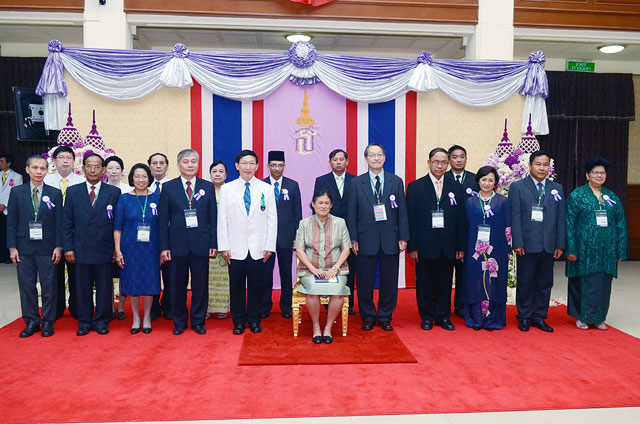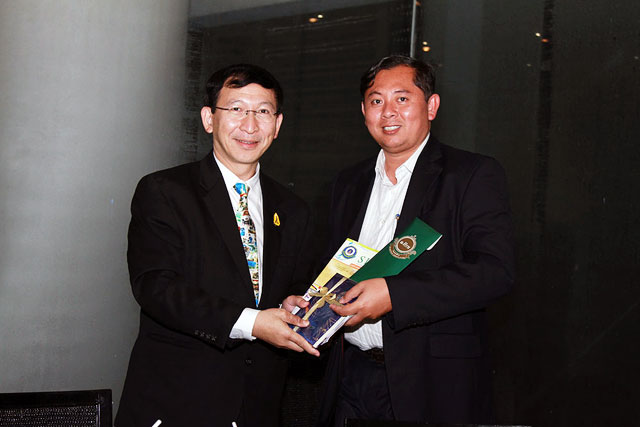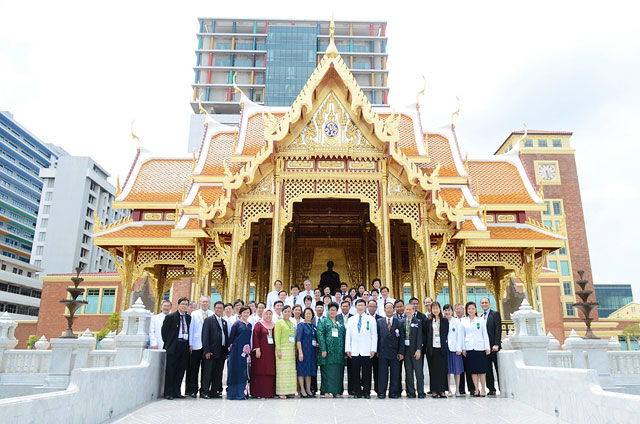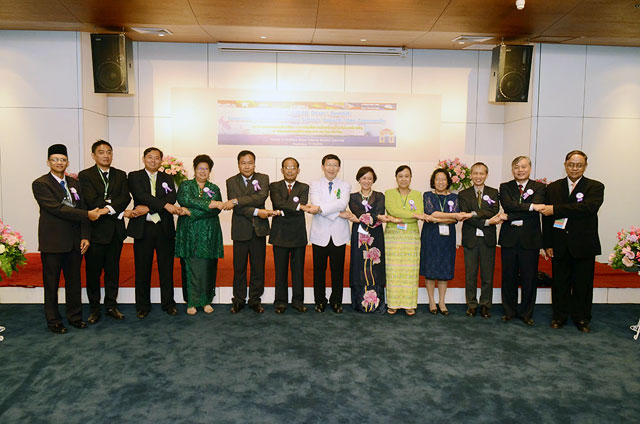
Bangkok: Initiated and financed by Faculty of Medicine Siriraj Hospital, Mahidol University, 13 universities and colleges from the ASEAN countries met in Bangkok on 17 Sep 2012 under the patronage of HRHPrincess Chakri Surindhorn of Thailand to discuss the establis hment of ASEAN Medical Schools Network.
Clinical Prof. Dr. Udom Kachinthorn, Dean of Faculty of Medicine Siriraj Hospital, spoke in his welcome address that the idea of establishing the network is promote closer and broader cooperation between all medical schools in the Southeast Asian region, open more opportunities to faculties, students, researchers and scholars to better work together as one community, establish standardized curricula in medical education and services in the sight of all countries in the region preparing to enter into ‘One Community, One Destiny’.
Among other ASEAN university and college leaders, Prof. Dr. Sabo Ojano, President of International University (Cambodia) spoke to the press during a press conference early on 18 Sept, ‘I am very excited to see the network happens. I highly appreciate the initiative of Prof. Udom, dean of Faculty of Medicine Siriraj Hospital without whose effort this meeting would be impossible’. I sincerely and highly support this meaningful grouping and hope that through this network we all will be able to help establish One ASEAN community with one standard, one quality excellence, and one destiny.
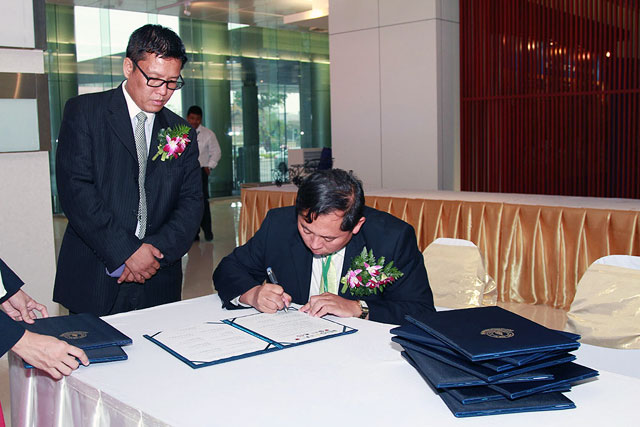
After the roundtable discussion later in the afternoon, all the 13 participating medical universities and colleges including PAPRSB Institute of Health Sciences, Universiti Brunei Darussalam (Negara Brunei Darussalam), International University (Cambodia), University of Health Sciences (Cambodia), Faculty of Medicine, Universitas Indonesia (Indonesia), Faculty of Medicine, University of Health Sciences (Laos), Faculty of Postgraduate Studies, University of Health Sciences (Laos), Faculty of Medicine, University of Malaya (Malaysia), University of Medicine (1), Yangon (Myanmar), University of Philippines College of Medicine (the Philippines), Yong Loo Lin School of Medicine National University of Singapore (Singapore), Faculty of Medicine Siriraj Hospital Mahidol University (Thailand), and Hanoi Medical University (Vietnam) signed on a Declaration on the Southeast Asian Medical School Network Initiative as follow:
The signatories to the Declaration on the Southeast Asian Medical School Network Initiative agreed:
1. To establish an initiative of a medical school network in the Southeast Asian community
2. The network will be developed by taking into account of:
I. International excellence in medical education in the ASEAN community
II. Global and competitive advance in biomedical research in the ASEAN community
3. The activities are among others:
I. Development of standardized curricula for medical and allied health professional schools
II. Collaborative network in biomedical research
III. Academic exchange programs for students and faculty.
‘I am very excited and really admired the leadership of the Faculty of Medicine Siriraj Hospital Mohidol University for making this meeting and network possible. This grouping will be a more productive network than the bilateral or trilateral ones as we had done before’ said Prof. Siewmey, Vice Dean of Yong Loo Lin School of Medicine National University of Singapore. Meanwhile, Prof. Adeeba Binti Kamarulzaman, Dean of Faculty of Medicine, University of Malaya, extended her full support for the initiative and announced that the next meeting of the group in 2013 would be hosted by her faculty in Kula Lampur, Malaysia.
Prof. Sabo Ojano concluded that the network will open a wider door for Cambodian medical students to go for effective electives and further education in the field in the region. He further advised that to have a promising future, Cambodian students must study harder not only the specialized subject, but also technology and the English language which is the ASEAN lingua frangua if they were to succeed in their profession and life. Erik Ek
